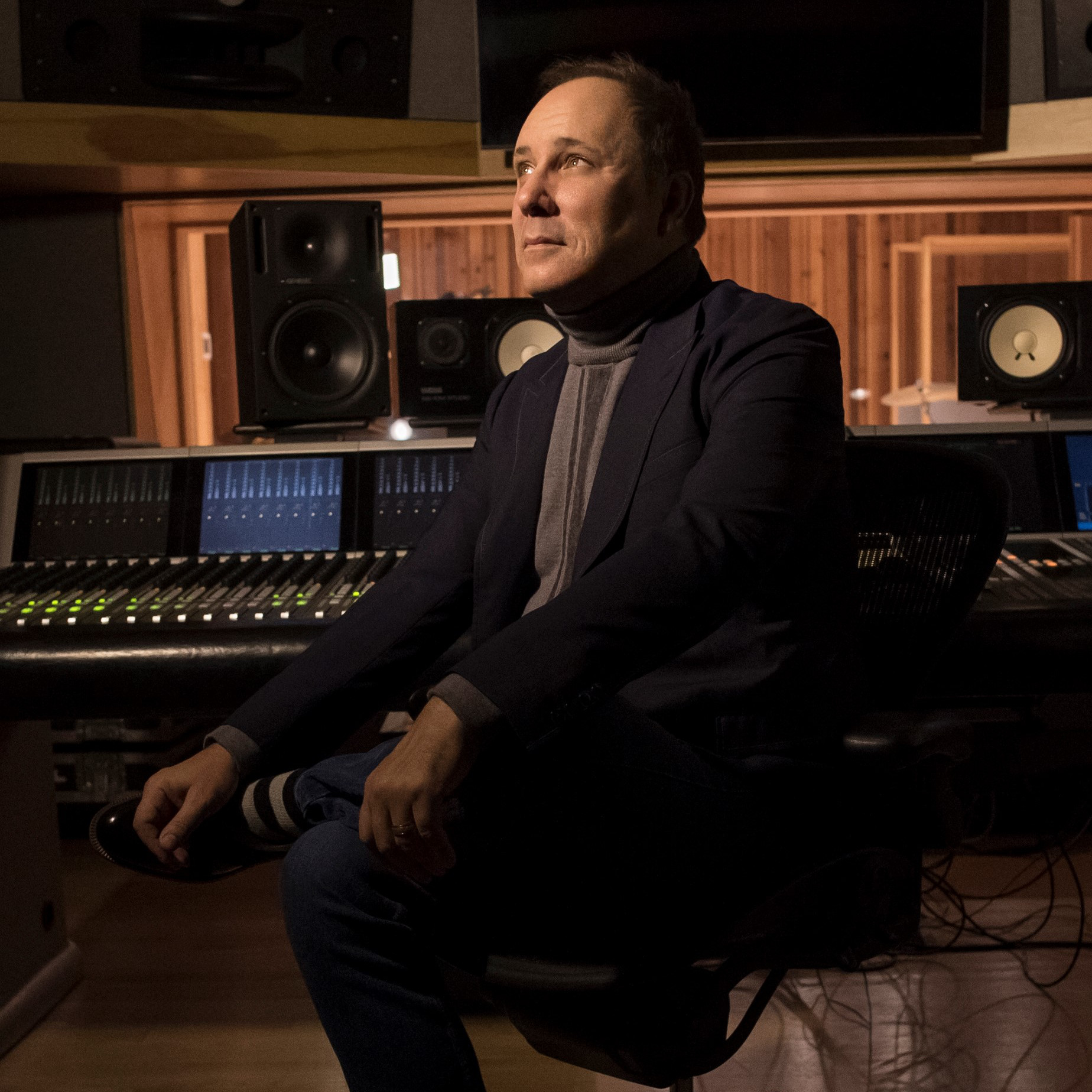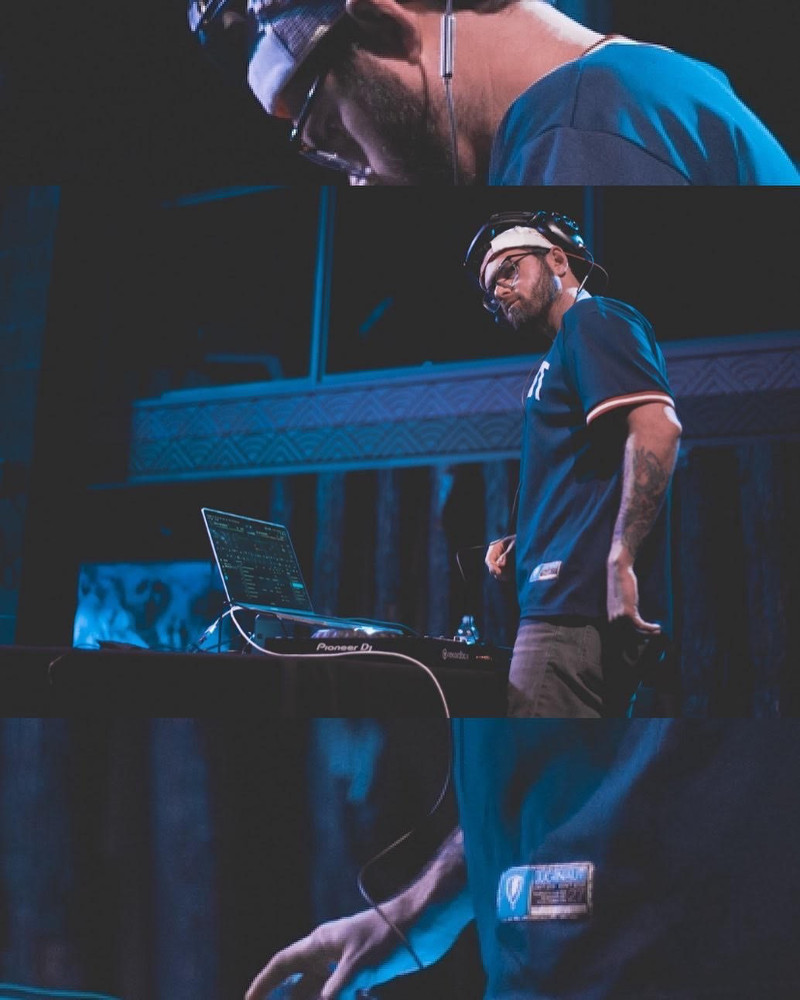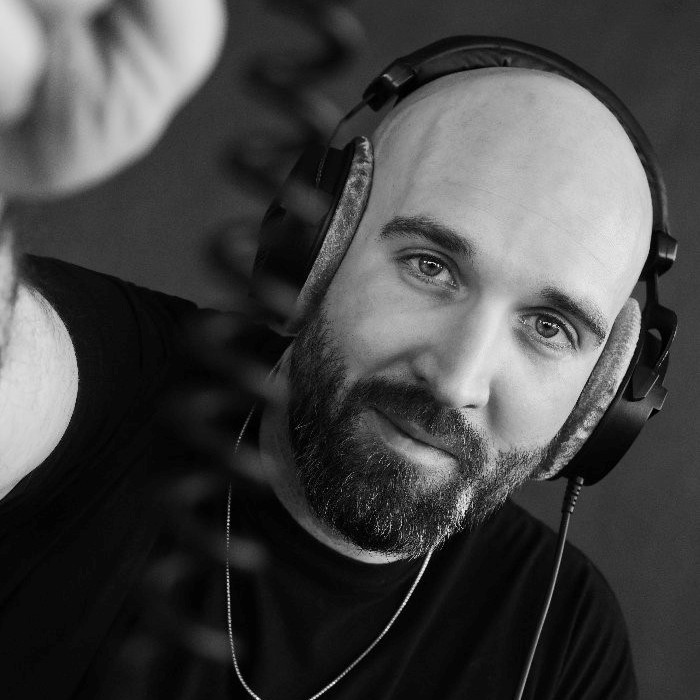How Do You Find a Manager for Music Producers? Ask R. Wayne Martin
Music producer managers are like UFO’s. Music producers know they’re out there, somewhere…How can we make contact?
In fact, there are a number of music producer management companies representing producers, mixers, studio engineers, live engineers, mastering engineers, beatmakers, composers, and more. A new manager for music producers has joined their ranks, with the recent addition of mthree: martin music management.

R. Wayne Martin has launched a music producer management arm of his company, mthree. (Photo credit: Anthony Cupo, Rust Films)
The initiative is helmed by mthree founder and principal R. Wayne Martin. A highly experienced music industry exec, Martin has held pivotal positions at major and independent labels, independent publishing, and the mechanical physical and digital rights-focused Harry Fox Agency.
Martin also hosts Small Plates, a podcast with quick career strategies for aspiring musicians and other creative performers.
He founded his California-based boutique artist management firm in 2016. His newly added music producer management division starts by signing Zachary Jablow aka The Professor and indie rock/pop specialist Adam Clark. Following a stealth vetting process, Martin named Jeff Betten, General Manager at Pittsburgh indie Misra Records and manager of the folk-Americana artist Buffalo Rose, as day-to-day manager overseeing the mthree producer roster.
Martin is building on skills he’s acquired developing both the talent and business skills of his music artists, working from a partnership mindset with each client. In return, producers gain not just a manager but a mentor. Both sides expect to nurture a long-term relationship.
Betton’s experience working at independent labels sparks the enterprise. He’s worked with countless discerning artists, producers and studios, and appreciates the impact of outstanding production on music and sound.
Zachary Jablow under the name The Professor, has credits including Chance The Rapper, Saba, Sidewalk Chalk, Slum Village, Vic Mensa, Curren$y, Mac Miller, and Ab Soul while advertising clients include McDonalds and RedBull. He also owns and operates two Nashville recording studios, HSC and The Hideout. Later in 2022 Jablow drops his first-ever artist project as Laev.
New York-based Adam Clark joins mthree on a pivot, from a decade-long singer/songwriter to full-time producer. His indie rock and pop projects include Cai Gray, Jon Car, Julie Elody, and Carmen Pascucci.
If you’re interested in how to find a music producer manager, or maybe even how to be a music producer manager yourself, absorb R. Wayne’s observations. He understands what makes managing producers different from managing artists, and where they cross paths. See why he says music producers enjoy key freedoms most music artists can’t, plus what he seeks in music producer clients – and when he takes a pass.
Ready to Expand on Music Management
Music management, whether it’s for artists or producers, can be a tough business. What keeps you engaged and excited about being a manager?
Several things. I have grown to embrace all of the disruption the entertainment industries experience with new technology. That keeps me learning. A year ago I wouldn’t have expected to be in the NFT/Web3 space but here I am.
And also it’s up to me to create a roster that is dynamic and diverse – all of my clients are musicians but they are all unique in many ways. Every day I work is different from the day before it and the one after – no way to get bored.
On the other hand, what makes music business management feel challenging — when are you having a hard day?
The number of people entering and exiting the music business every day means that I have to keep networking even after decades into my career. That falls below serving my clients and their projects but it’s mission critical, so I get super-frustrated if I haven’t been able to meet and connect with new people after a while.
mthree has been involved in artist management in its current form since 2016. Why is now the right time for you to add a music producer management division?
I finally felt grounded enough in the ebb and flow of the mthree company rhythm to expand. I understood the risks and resources that would be required really only after I had spent a lot of time cold calling and interviewing producers about the idea.
That was a networking event, too. I wasn’t looking to poach from another roster but I needed to learn from successful producers what made a good manager for them. So much fun talking to the best in the business.
The Music Producer Opportunity: “A Wonderful Kind of Flexibility”
What are the unique opportunities that you see available to music producers today? Conversely, what makes this a uniquely challenging time to be a music producer?
I’ve been branding people since the 1980’s, and an artist brand is their brand. Occasionally, they will do work under a pseudonym but for most public-facing creatives, they need to keep everything under one brand or connected to and reinforcing one overarching brand.
Music producers aren’t restricted that way. They can make beats and sell tracks, they can create tools for other producers, they can release their own projects as artists, they can create music beds for libraries, have synch careers, and it doesn’t matter when and how those different efforts roll out to the outside world. The sequence of timing and the names they might choose to work under are really much less important, and for me that diversity creates a wonderful kind of flexibility.
On your website, you list eight fundamental roles that a manager should serve for their client. Which of these roles might be more important for a producer than for an artist?
That’s a really tough call. There are so many similarities. If I had to pick just one I’d say “growth advisor.” When I’m advising a recording artist on career growth, it generally means building new skill sets outside of music, not always, but generally.
Producers are charged to be more adaptable to the creatives around them, so the growth piece often means heightened capability in a creative or business area they are already active in. I may work with them to build out a series of upcoming projects in a genre they are not immediately drawn to so that their perspective widens, or I might upgrade their business training when they have been successful in business already.
The Launch Plan
You selected Jeff Betten to be the day-to-day manager for your producer roster. How did you choose Jeff – what were the criteria you had for the person in this role at mthree?
At first Jeff didn’t know it was me. I kept the call out for referrals very close to my chest and just had some word of mouth roll out without naming mthree as the hiring company. I wanted to locate candidates that really wanted the job of being a producer manager, and not the job of working for me or working for mthree. So it was secretive recruitment.
Jeff was one of many who sent in resumes and cover letters, but he had just the right amount of experience and the right kinds of experiences, he wanted in on the ground floor plus we got each other really quickly. He was the one to beat and no one else did.

Zachary Jablow aka The Professor is an early signee to mthree. Zachary Jablow (Photo credit: Zach McCollum)
Your first two producer clients are Zachary Jablow aka The Professor and indie rock/pop specialist Adam Clark. Why did you target these two specific producers to launch with?
I have always spent a long time getting to know anyone that would consider signing, meeting their families, significant others, and so when I began to think about which producers I wanted to champion, I began to set up weekly Zoom calls with them so we could check our alignment.
I often mentor creatives, other junior managers, so Adam Clark and I had already started to get to know one another before I started to look around. I was so blown away by his eagerness and his drive for results that I had to bring him on despite just a few years experience. Adam was and is primed for quite a trajectory and I knew I wanted to help him get there.
Zak’s most recognizable credentials come from the hip hop world where mthree has never been in any capacity, and I found that a big draw. And the fact that he is capable in so many genres made the idea of Zak even sweeter. He was a pro but still coachable, talented but still stretching, and then I heard his artist project (Laev) in rough form and it was all over. I wanted to work with him for sure. We are releasing that this year, by the way.
When Do You Need a Manager for Music Producers? “Mindset” Makes You Ready
In general, what are the qualities that make a music producer a good candidate for representation — what makes them ready, and conversely, what makes them not yet ready?
It’s not about experience or skill set necessarily. I mention mindset on my podcast, it’s called Small Plates, on almost every episode. Prove to any manager that you have the mindset to create a tremendous career and you’ll get representation.
But ya gotta prove it: Take feedback and offer ideas as a business partner and show prospective managers that their quality of life and payday is as important to you as yours is to them.
But with respect to not being ready, I find that when ego is driving the conversation, some time has to go by before that person will be suited for the kind of compromise and sacrifice needed to blow up next level. At least with me. We run a very real ship with real relationships running through it.
What advice would you give to a music producer who wants to attract a manager? What’s the right way to go about it, and what is the wrong way?
Always be direct about why you’re contacting them, ask if they have any open roster positions, and deliver links to streams if permitted. Being too familiar, too hyped up, or too reserved is as wrong an approach for producers as it is for recording artists.
Why Now? Making an Impact Through Music Producer Management
What kind of impact do you hope to make on music as a producer manager? In other words, how can quality music producer management make a positive impact on producers, artists, and fans?
We plan to bring at least five music producers to the forefront of industry consciousness – that number is the cap for our producer roster, at least for the first two years.
By building the careers of creatives who live in authenticity… and collaborating respectfully and challenging artists carefully, everybody you mentioned [producers, artists, fans] wins.
You served as a mentor to many through your 10 years of teaching at NYU, just became the first music manager to present to the Recording Artist Project at Harvard Law School. What are some recent sources of inspiration for you – people, books, podcasts, shows, etc…?
For a while it was Gary Vee as a personality but I’m so into the words and theories of (author and inspirational speaker) Simon Sinek – in fact, Zak and I bonded over an appreciation for all things Simon, who has nothing to do with music but everything to do with purpose and people.
Emily White’s book on how to build a sustainable music career is one I hand out to people regularly, and if you get a chance to attend a virtual session with Amber Horsbugh who is an artist coach out of Brooklyn – those are my go-to’s at the moment in the music space. All real talk.
Those are excellent tips. Last question! What do you do outside of work that brings you balance?
Time outside in the sun in the middle of each and every day, a walk, a swim, even an errand with the top down on my car, I make time for that for sure.
— David Weiss is an Editor for SonicScoop.com, and has been covering pro audio developments for over 20 years. He is also the co-author of the music industry’s leading textbook on synch licensing, “Music Supervision, 2nd Edition: The Complete Guide to Selecting Music for Movies, TV, Games & New Media.” Email: david@sonicscoop.com
Please note: When you buy products through links on this page, we may earn an affiliate commission.








